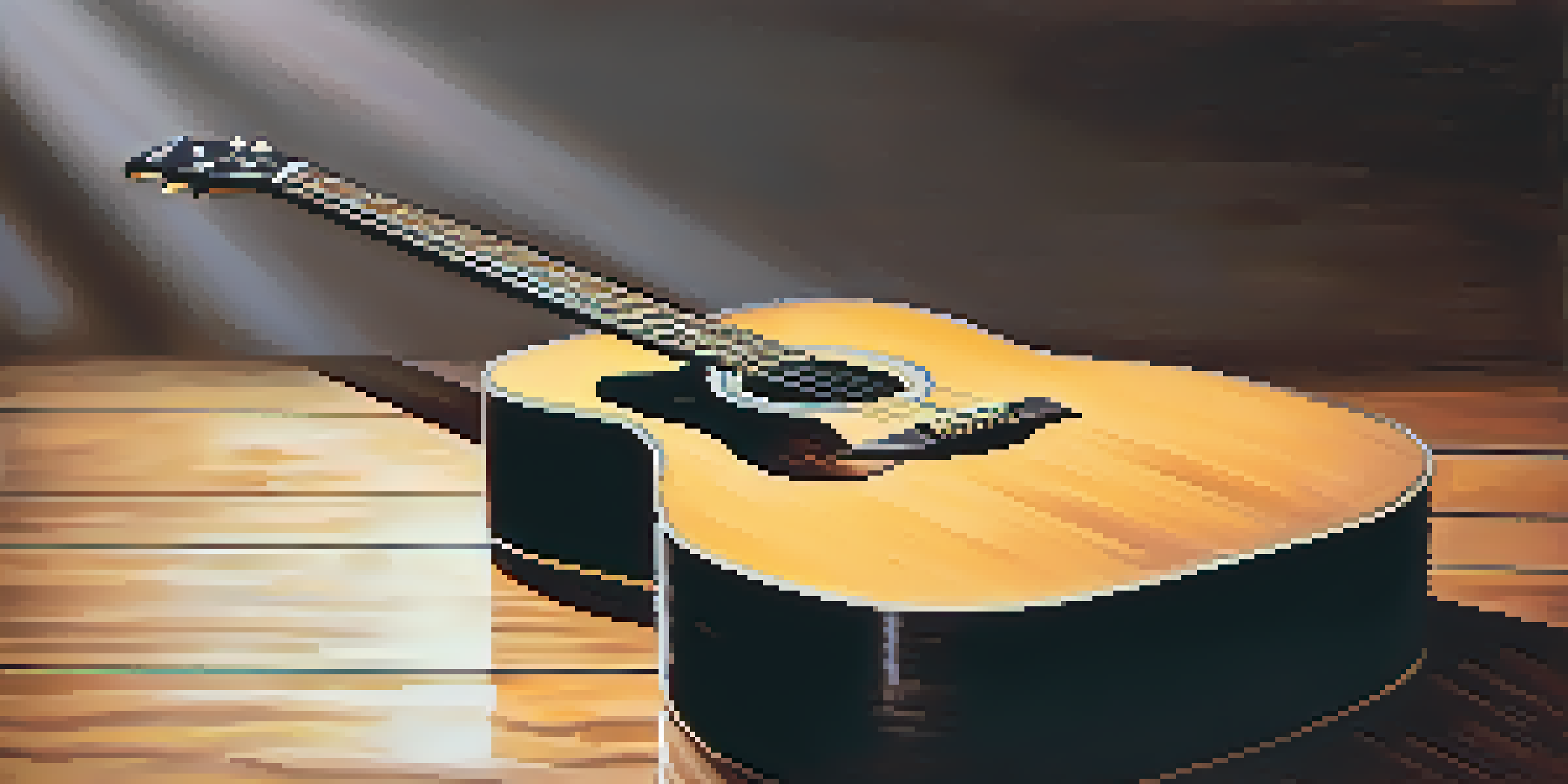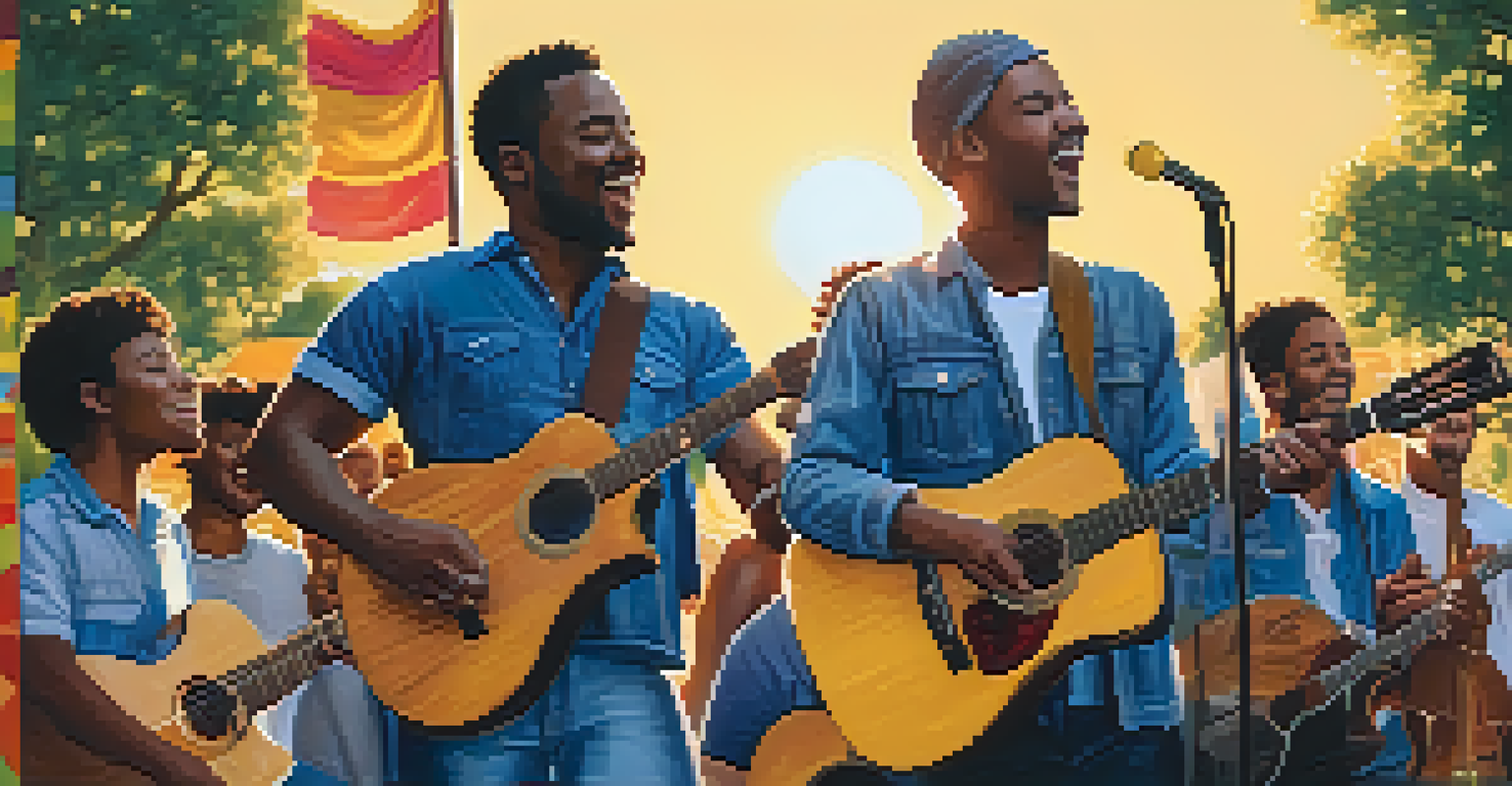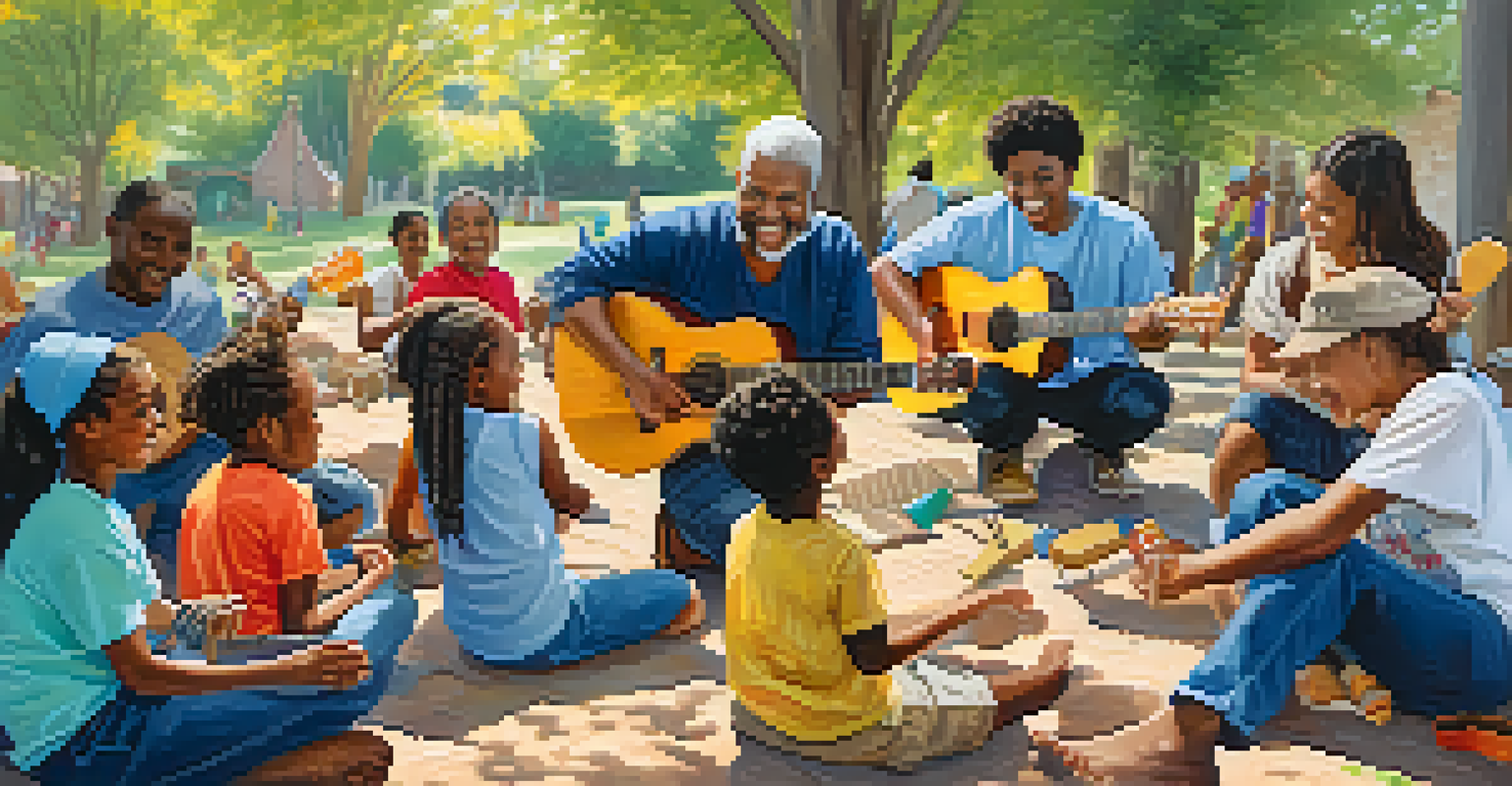Guitar as a Symbol of Resistance in Social Movements

The Guitar's Role in Expressing Dissent
The guitar has long served as an instrument of protest, allowing individuals to voice their dissent and convey their messages. From folk music to punk rock, its versatility makes it a perfect conduit for expressing frustration and hope. Iconic songs like Bob Dylan's 'Blowin' in the Wind' resonate deeply, capturing the essence of social struggles.
The power of music can never be underestimated. It can change the world, and it can change lives.
When people gather to protest, a guitar often accompanies them, creating an atmosphere of unity and shared purpose. This communal aspect of music can amplify the emotions of a movement, turning simple gatherings into powerful demonstrations of solidarity. It's not just about the sound; it's about what that sound represents.
Moreover, the accessibility of the guitar enables anyone, regardless of their background, to participate in musical resistance. This democratization of music means that anyone can pick up a guitar and share their story, making it a tool for empowerment in the hands of the oppressed.
Historical Examples of Guitar in Resistance
Throughout history, the guitar has played a crucial role in various social movements. For instance, during the Civil Rights Movement in the United States, artists like Joan Baez used their music to advocate for justice and equality. Their songs not only entertained but also inspired countless individuals to join the fight for civil rights.

In Latin America, the Nueva Canción movement utilized the guitar to challenge political oppression and celebrate cultural identity. Musicians like Mercedes Sosa and Victor Jara used their art to expose social injustices, often at great personal risk. Their legacy continues to inspire new generations of activists.
Guitar as a Voice of Protest
The guitar serves as a powerful instrument for expressing dissent and unity in social movements.
These historical examples illustrate the guitar's unique ability to unify people under a common cause. When strummed in harmony, it transcends language barriers, fostering a sense of belonging among diverse groups fighting for change.
The Emotional Power of Music in Activism
Music has a unique way of evoking emotions, and the guitar, in particular, can stir deep feelings of hope, anger, or nostalgia. This emotional connection is vital in social movements, as it helps galvanize supporters and keeps the momentum going. When people hear a familiar protest song, it can reignite their passion and commitment to the cause.
Music is the divine way to tell beautiful, poetic things to the heart.
For many, the guitar symbolizes not just music but also the resilience of the human spirit. It can bring comfort during challenging times, reminding individuals that they are not alone in their struggles. The melodies can serve as a rallying cry, urging people to take action and persevere.
Additionally, the storytelling aspect of guitar music allows activists to share their experiences and struggles effectively. These narratives resonate with listeners, making them more likely to empathize with the movement and take part in the fight for justice.
Guitar in Modern Social Movements
In today's world, the guitar continues to be an emblem of resistance in various social movements. From the Women's March to Black Lives Matter, musicians are using their platforms to amplify voices that have been silenced. Songs that address contemporary issues create a soundtrack for activism, driving home the urgency of the cause.
The rise of social media has further extended the reach of guitar-driven activism. Artists can now share their messages globally, inspiring individuals far beyond their immediate communities. This interconnectedness has the potential to create a more profound impact, as movements gain momentum online and offline.
Healing Through Music
Beyond protest, the guitar fosters healing and community rebuilding in societies affected by conflict and injustice.
Moreover, collaboration among artists from different genres and backgrounds has enriched the landscape of protest music. This fusion creates a diverse array of songs that appeal to various audiences, ensuring that the message of resistance continues to resonate across generations.
The Guitar as a Tool for Healing and Recovery
Beyond merely serving as a tool for protest, the guitar can also play a significant role in healing communities affected by conflict and injustice. Music, especially when created collaboratively, fosters a sense of belonging and shared identity among individuals facing adversity. This aspect of music can be incredibly therapeutic, helping people process their experiences.
In post-conflict societies, musicians often use the guitar to tell stories of resilience and hope, offering a pathway for healing. Through songwriting and performance, they can express collective grief while also celebrating survival. This dual purpose of music can be a powerful catalyst for community rebuilding.
Furthermore, community music programs that incorporate guitar playing can help empower marginalized individuals, enabling them to reclaim their voices. These initiatives provide spaces for expression, allowing participants to connect with their emotions and each other, ultimately promoting healing and social cohesion.
Iconic Guitarists Who Represent Resistance
Several iconic guitarists have become symbols of resistance through their music and activism. Artists like Jimi Hendrix and Carlos Santana used their talents to address social issues while inspiring generations of musicians. Their unique styles and powerful messages have left a lasting impact on the world of music and activism alike.
Similarly, contemporary artists like Hozier and Billie Eilish harness their platforms to advocate for change, addressing issues like climate change and mental health. The emotional depth of their lyrics, combined with the guitar's melodic capabilities, resonates with listeners, encouraging them to join the conversation.
Future of Guitar in Activism
As social issues evolve, the guitar will continue to adapt, inspiring new generations to advocate for change.
These musicians exemplify how the guitar can be a tool for change and empowerment. By using their voices and talents, they inspire others to pick up their instruments and join the fight for a better world.
The Future of Guitar in Social Movements
As we look to the future, the guitar's role in social movements is likely to evolve but remain significant. With the rise of digital platforms, new genres, and diverse voices, the potential for musical resistance is vast. Emerging artists are finding innovative ways to incorporate technology into their music, ensuring that the message of resistance reaches wider audiences.
Furthermore, as global issues like climate change and social inequality take center stage, the guitar will continue to be an instrument for advocacy. Musicians will likely adapt their messages to reflect the changing landscape, uniting people in pursuit of common goals.

Ultimately, the guitar symbolizes hope and resilience, reminding us that music can be a powerful force for change. As long as people are passionate about their causes, the guitar will remain a beloved companion in the ongoing struggle for justice and equality.